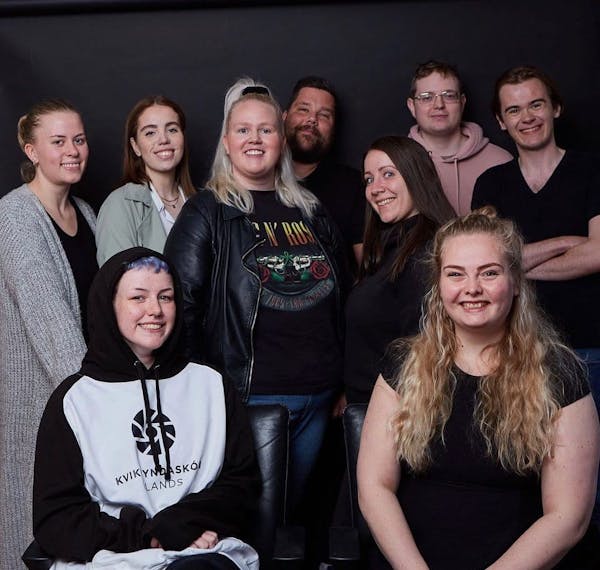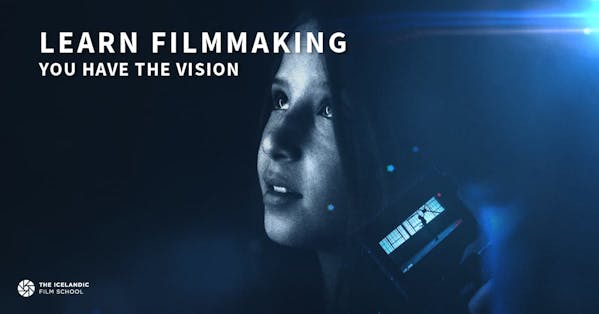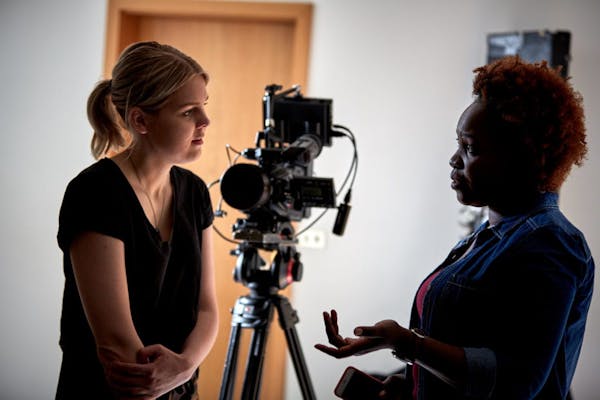Arna Magnea Danks about her role in "Odd Fish"
Arna Magnea plays Björn/Birna in Snævar Sölvason's recently released film and has received great praise for it

Arna Magnea is a teacher, fight director, stunt performer and actress. Arna has a diploma in teacher studies from the Icelandic University of the Arts, a BA in Acting from the University of East London and studied martial arts at the British Academy of Dramatic Combat. She received training from Nick Hall, master at arms and chairman of the BADC. She was a stunt performer in many projects, including opposite Russel Crowe in Noah, Dead Snow 2 and Game of Thrones, where she also taught and choreographed fights. She has also been a stunt director in Fangar, Vitjanir, Svartir Sandar 1 and 2 and Húsó, as well as acting in Svartir Sandar 1 and 2 and Húsó. She teaches stage combat arts at The Film School.
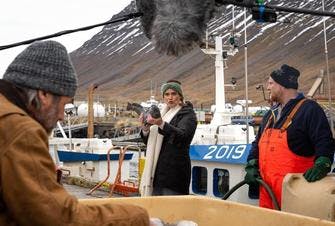
You have taught at The Film School for the past few years, do you have any good memories from there?
In short, you can say that I have nothing but good memories from IFS. It suits me exceptionally well to teach diverse groups with all kinds of backgrounds, and I have never noticed anything other than that I am always well received there, both by students and staff. Whether it was before I came out or after.
What do you think of the future filmmakers you've taught?
They look promising and many of them have been in contact with me after graduation, both to get advice on stunt issues and with the industry, but also just to chat. I wish them all the very, very best, all day, every day.
Can you tell us about the role you play in "Odd Fish"?
I play Björn/Birna, who is a trans woman. She is still in the closet when we first meet her in the film and clearly something is weighing on her, as her father is dying at the beginning of the film, but then it turns out, when she comes out, that it was also the creature in the closet who was burdening her.
The film is about how the relationship between Birna and her childhood friend and partner, Hjalti, develops and matures after Birna comes out.
Birna is the truth, but Björn was the disguise that helped her survive, until he didn't anymore and the truth became so burdensome that he was killing her.
She is sweet, sensitive, loves to cook, and has pretty much shut herself off from the world to protect herself and her truth, until she comes out and finds the strength and relief in the freedom of no longer pretending. She has actually been sheltered by her parents and her friend Hjalti, as she herself says in the film: "Hjalti! Without you there would never have been any Birna!" - Here she is actually saying that she would never have survived without Hjalti and his friendship.
How did you approach the role?
As a trans woman myself, I had a clear connection to the role, but many things were different between us, such as Birna was at sea and worked as a cook, but I have never worked at sea, although I have cooked in a restaurant in Sweden around and after the turn of the year 1995 - 1996 and sometimes like to cook myself. So I got to work a bit at the Tjöruhúsið (the Red House in the movie) to prepare myself there. Then I went to class with the director/teacher Kári Halldór to work with the text, nuances and more. Then I went to Þórey Sigþórsdóttir for voice training, because I needed to be able to switch between Björn's voice and Birna's according to need and expectations.
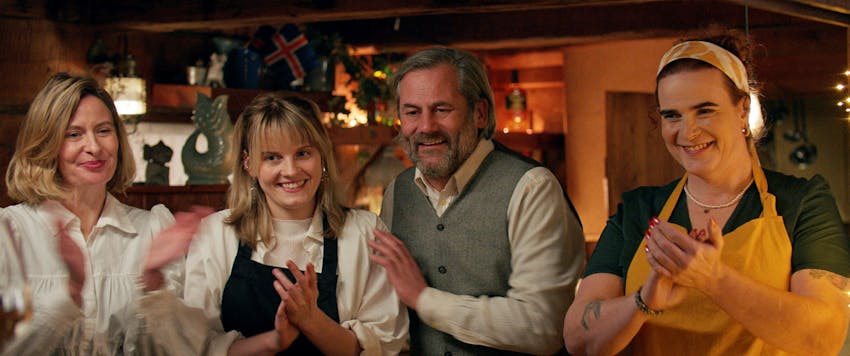
What made you take on this role?
After being a consultant on the script, because Snævar Sölvi wanted everything related to trans to be true to life, I couldn't help but ask for the opportunity to play Birna, being the only trans woman in Iceland who is a trained actress. I still had to convince the producers and other people that I could take on a supporting role in a movie, so I went through a few auditions before landing the role.
How did the filming go?
It was wonderful to live in Ísafjörður and the people there are absolutely wonderful. Many of the shoots were very challenging as I was often outside and it was extremely cold at that time and the wind made it difficult for us several times. There was also a certain thought and design in both Björn's and Birna's appearance that didn't quite take into account this cold, so I was often struggling to act like I wasn't cold when I was freezing and then constantly taking some cold medicine because I was on the verge of getting sick during the last few weeks of filming. My support was usually my co-stars, because we were going through similar things. Björn Jörundur was especially good for me and I am eternally grateful to him. Of course you could laugh at many things, especially afterwards! Like when the wind was so strong that the lights broke and Björn Jörundur and I had to pretend, on top of everything else, that there was no wind and that we weren't cold.
What was the experience of wrapping up shooting?
Because I had been fighting the frost and coming down with a fever, cold and fear of losing my voice for the last two weeks, it was a relief to be able to finish the role honorably. But then a few days later, when I was finally warm again and recovering from the illness, of course there was a certain longing for Ísafjörður and the whole adventure.
How did it feel to watch the film on the big screen?
It was difficult for the first time in Reykjavík, because so many things went through my mind (seeing it for the first time), like what and what didn't survive the editing process. Then I saw it again at Ísafjörður and then I was able to enjoy it more and was quite satisfied, although of course there is always something that you would have liked to do a little better, or something a little different... hindsight is 20/20 ! But I always find it hard to see myself, whether on a screen, in a picture or in a mirror. It's part of the trans woman's struggle, because I'm never the same in a picture as I really am inside, although thankfully I'm always getting a little closer to that through the years.
And of course finally, what does the future look like?
It is pretty undecided right now, outside of teaching. I teach Icelandic as a second language for the children of immigrants at Mýrarhúsarskóli in Seltjarnarnes and have been doing this for the past 6 years as my main job.
Hopefully I'll get more interesting roles after "Odd Fish", but it's just the way it is in the business that middle-aged women, let alone middle-aged trans women, usually don't get many offers.
